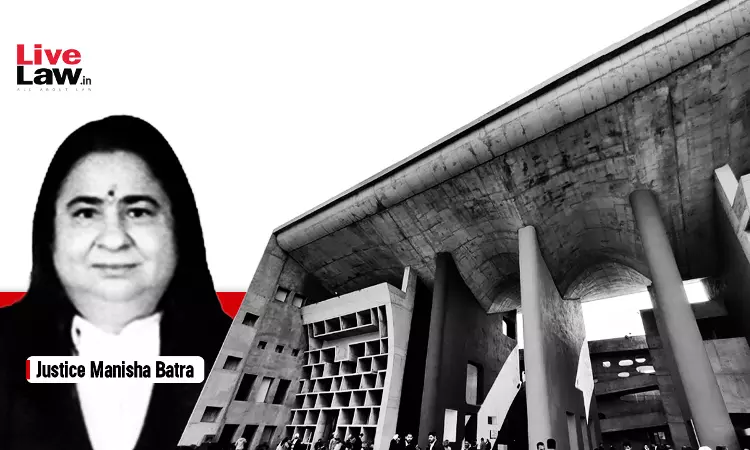- Home
- /
- High Courts
- /
- Punjab and Haryana High Court
- /
- Jail Is Not Rule In All Economic...
Jail Is Not Rule In All Economic Offences, No Bar On Granting Bail When Allegations Not Grave: Punjab & Haryana High Court
Aiman J. Chishti
31 May 2025 3:30 PM IST
Observing that jail should not be the norm in all economic offences, especially when the allegations are not of a grave nature, the Punjab & Haryana High Court recently granted relief in a tax evasion case.Justice Manisha Batra said, "it is not advisable to categorize all the economic offences into one group and deny bail on that basis. While considering the question of grant of bail,...
Observing that jail should not be the norm in all economic offences, especially when the allegations are not of a grave nature, the Punjab & Haryana High Court recently granted relief in a tax evasion case.
Justice Manisha Batra said, "it is not advisable to categorize all the economic offences into one group and deny bail on that basis. While considering the question of grant of bail, the gravity of offences is an aspect, which is required to be taken into consideration. The gravity has to be gathered from the facts and circumstances arisen in each case. One of such circumstances is also the term of sentence that is prescribed for the offence the accused is alleged to have committed."
The Court added that, while considering the prayer for grant of bail in any offence, including economic offences, "it is not a rule that bail should be denied in every case where the allegation is one of grave economic offences since there is not such bar created in the relevant enactment passed by the Legislature nor does the jurisprudence provide so."
The Court was hearing plea under Section 483 of the BNSS, is for grant of regular bail to the petitioners in case arising out of Complaint under Section 132(1)(b) of the Central Goods & Service Tax Act, 2017 [issueing any invoice or bill without supply of goods or services or both in violation of the provisions of this Act, or the rules made thereunder leading to wrongful availment or utilisation of input tax credit or refund of tax].
It was alleged that a fictitious firm was formed under the name of M/s Dashmesh Traders, and the firm was engaged in availing and passing on fraudulent Input Tax Credit, investigation was initiated by the respondent in order to ascertain the genuineness of the firm and its business. It was revealed that the firm was registered at a fictitious address by misusing false and fabricated documents.
As per the further allegations, the GST authority conducted a search in the office of the petitioners and recovery of unaccounted cash to the tune of Rs. 16,73,900 along with letter heads of different firms registered under GST, passbooks of different banks, cheque books and notebooks/diaries was effected.
After hearing the submissions, the Court noted that as per Section 132 of CGST Act, "the offences alleged carry minimum punishment of 06 months and a maximum punishment of 05 years of imprisonment" and also the same is compoundable.
Reliance was also placed on Satender Kumar Antil vs. Central Bureau of Investigation and another, wherein the Supreme Court dealt extensively with the rights of the accused in economic offences by observing that the law laid down in P. Chidambaram's case still governed the field.
Justice Batra highlighted that the gravity of the offence, the object of the Special Act and the attending circumstances are a few of the factors to be taken note of along with the period of sentence.
"After all, an economic offence cannot be classified as such, as it may involve various activities and may differ from one case to another. Therefore, it is not advisable on the part of the Court to categorise all the offences into one group and deny bail on that basis," the Court added.
Considering that the alleged offences are punishable with a maximum sentence of up to five years, and keeping in view that further detention of the petitioners may not be justified in such circumstances—since in cases of this nature, the evidence to be presented by the respondent is primarily documentary and electronic, and will be produced through official witnesses, thereby eliminating any apprehension of tampering—the Court granted relief, subject to certain conditions.
Mr. Saurabh Kapoor, Advocate for the petitioners.
Mr. Rajesh Sethi, Senior Standing Counsel with Ms. Kanika Sachdeva, Advocate for the respondent.
Title: Narinder Kumar Joshi v. Directorate General, Goods & Service Tax Intelligence



